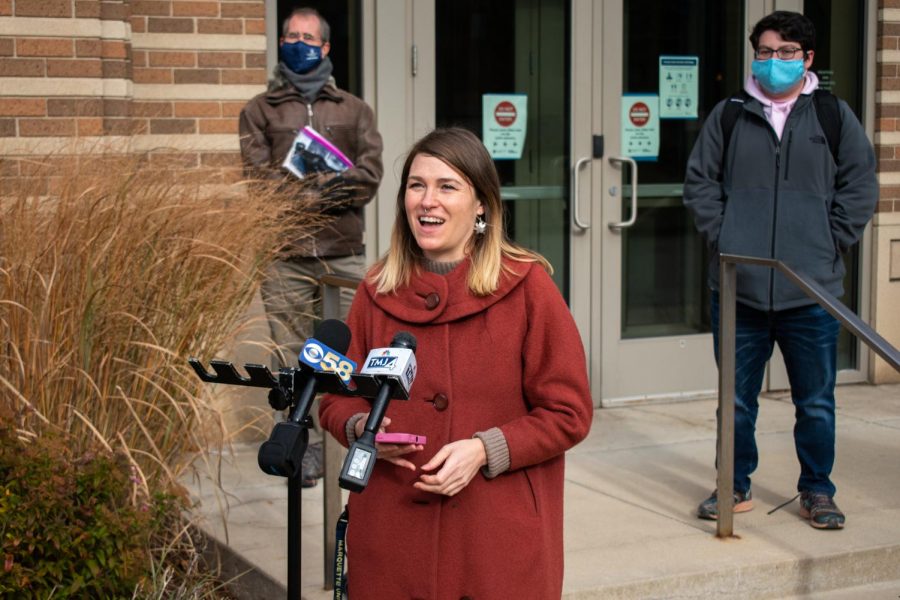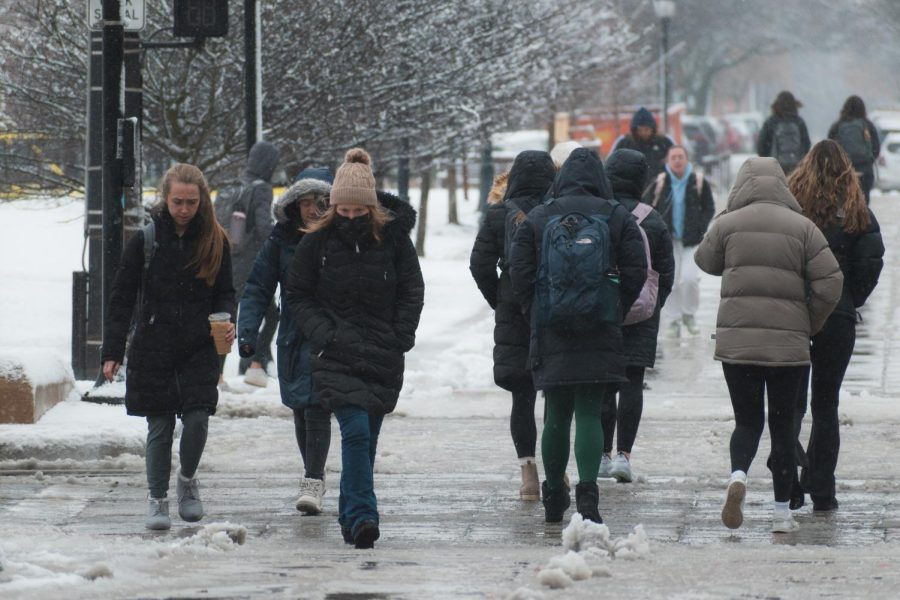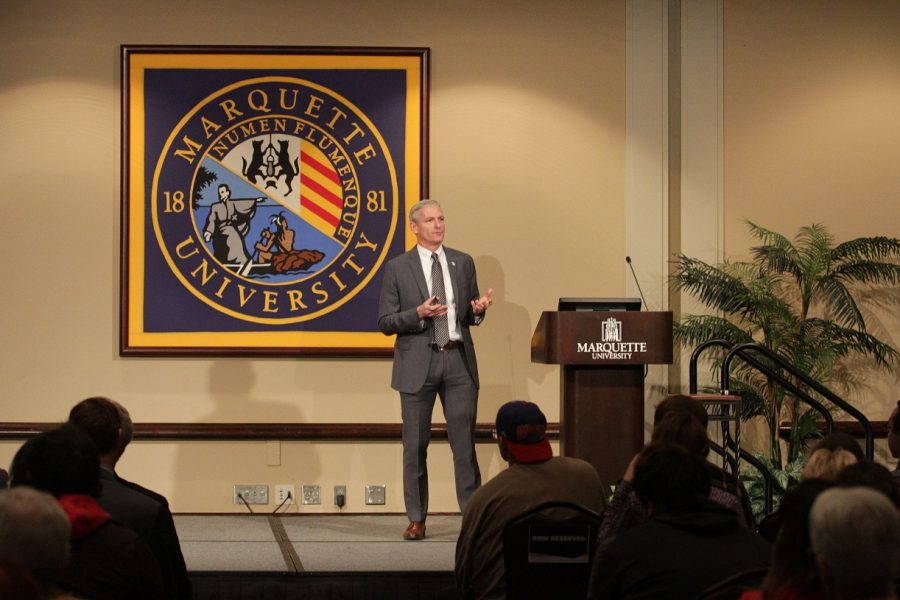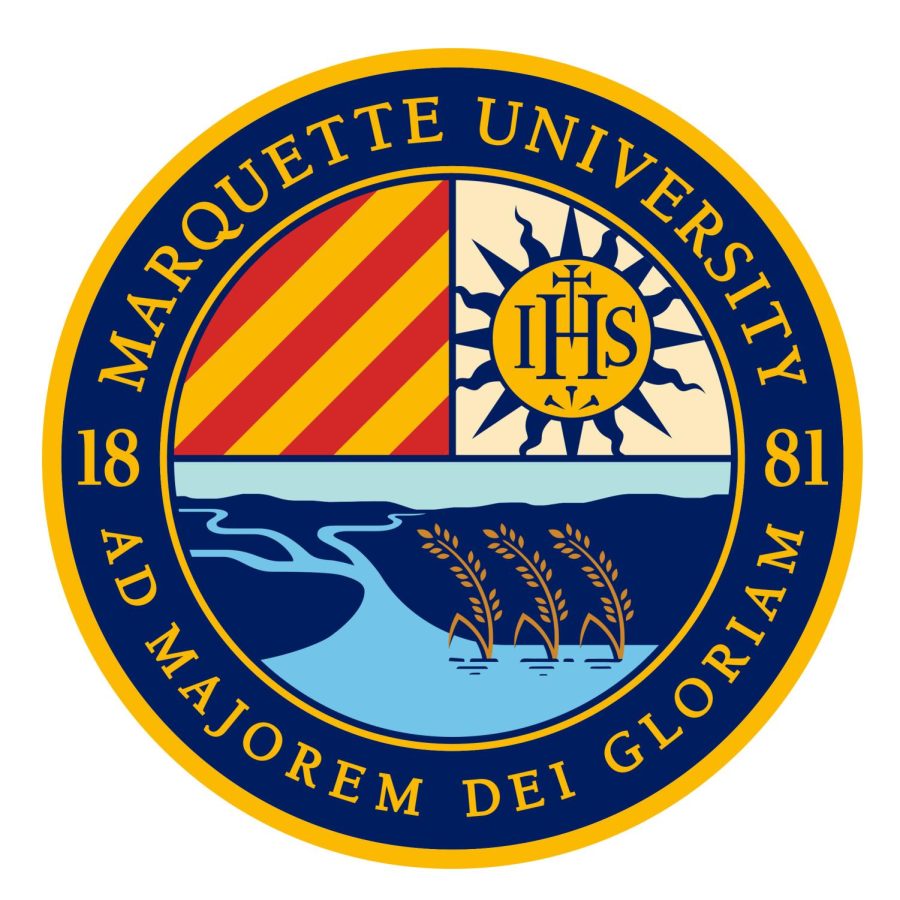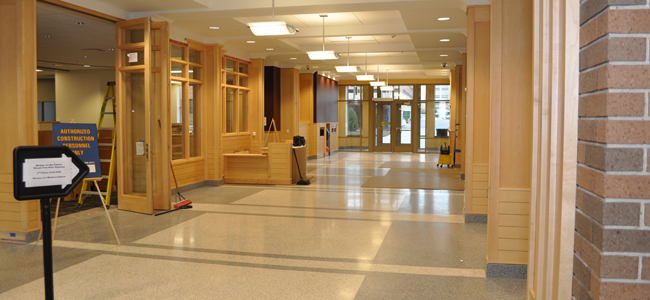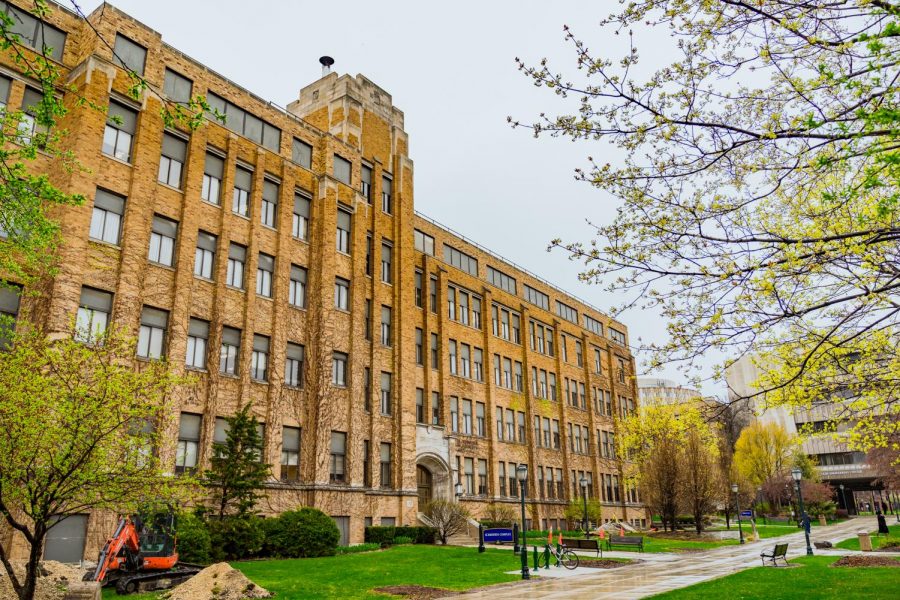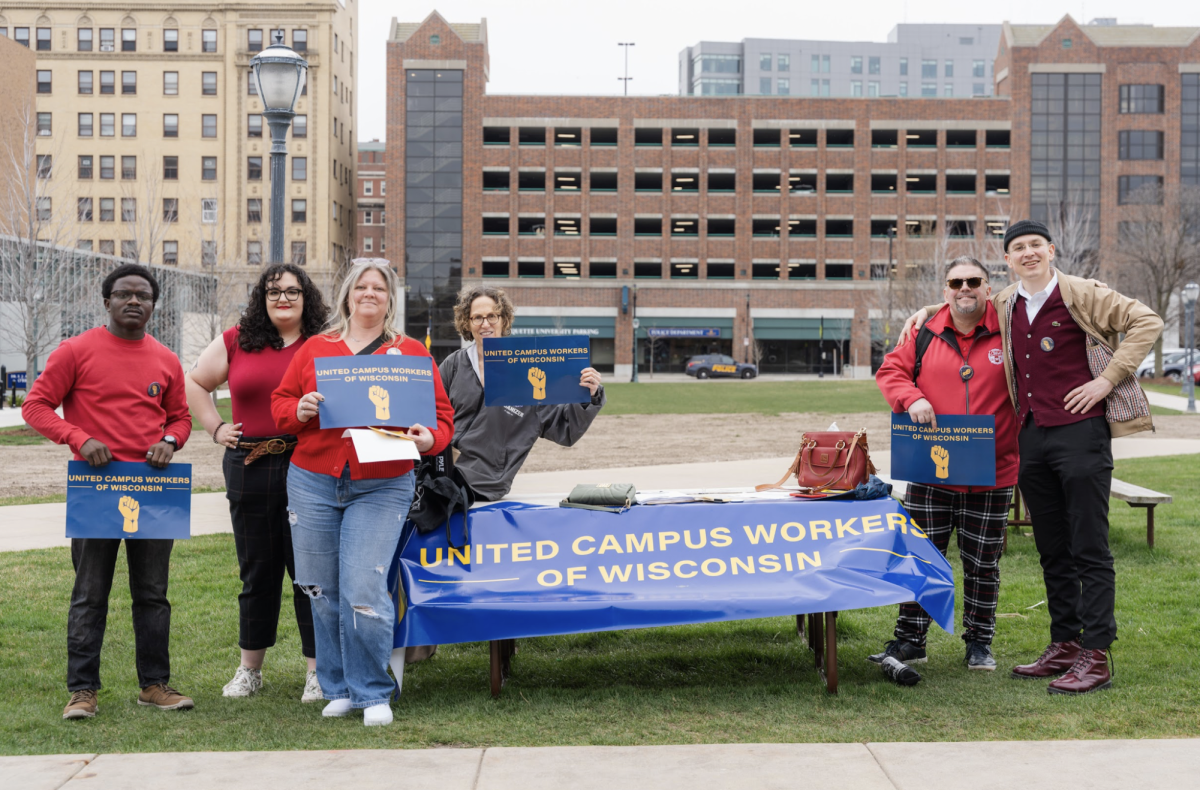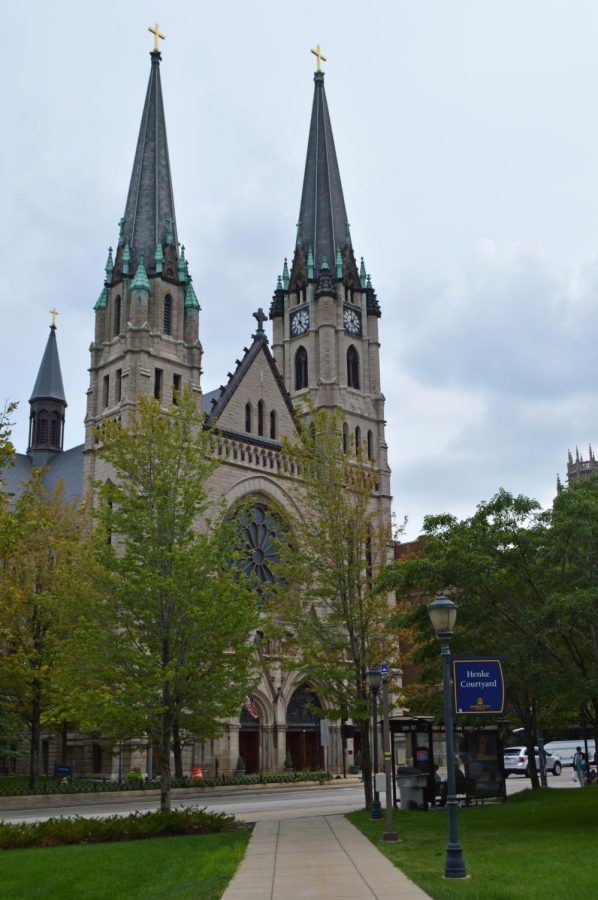Multiple Marquette instructors called in sick Monday after stating they were especially “sickened” by the budget cuts proposed by the university. This lead to multiple online and in-person classes being canceled Monday.
The budget cuts proposed by the university could potentially lead to a large number of faculty and staff being laid off due to the effects of the COVID-19 pandemic.
A press conference was held at Zilber Hall to address a large number of staff members absent from their classrooms Monday.
“Marquette faculty, staff and students have weathered our ongoing moment of crisis with bravery and resilience,” Sarah Kizuk, a graduate assistant in the College of Arts & Sciences, said. “We have withstood the ongoing COVID-19 health crisis, an economic recession, an ongoing social movement fighting racism in this nation and the erosion of our political institutions.”
Kizuk said that the Marquette administration has used the ongoing crises as an excuse to discard Marquette’s own values as a Jesuit university and to solve fiscal issues caused by University President Michael Lovell’s mismanagement.
The lack of action by the university to preserve jobs and solve these issues led to many faculty members calling out sick Monday as a symbol of their disappointment and anger.
“We love the work that we do,” Kizuk said. “All we ask is that we continue to be given the right to work at this vocation we have chosen.”
Marquette was recently ranked 18th in the nation in terms of undergraduate education. This ranking could be threatened should the number of faculty and staff be cut, leading to larger class sizes and less personal relationships between instructors and students.
“We (members) here today, fear that President Lovell’s vision undermines the core values of this institution,” Kizuk said. “We fear that the administration is using this moment of shock and crisis to push through a radically different vision of Marquette University.”
Kizuk was also joined by others at the press conference, including Jonathan Jimenez, a senior in the College of Education.
“One of the things we as students choose to come to Marquette for is not just an education … but for lifelong relationships,” Jimenez said. “That includes faculty.”
Jimenez said the education Marquette professors give students goes beyond just the walls of a classroom. Life skills are also taught by professors, and these provide students with meaningful connections in the workforce that benefit them beyond the typical undergraduate education.
“Our professors are more than just professors … they are lifelong mentors,” Jimenez said. “If they’re lost, most of us won’t ever be able to connect with them again. These are people who will help guide us.”
Jimenez also raised concerns about where their cuts are being proposed, as they are in areas that have large amounts of students.
“I just want to implore President Lovell and our administration to think about what they’re doing in this situation,” Jimenez said. “They’re affecting people’s livelihoods. These aren’t just numbers on a graph or in a chart, these are people.”
Professor of History Peter Staudenmaier also gave insight into how a decreased amount of staff can have a negative impact on undergraduate education.
“From a teacher’s perspective, one of the things that make Marquette distinctive … the reality behind (‘Be the Difference’) is great, the university can live up to its best deals,” Staudenmaier said. “But in order to do that, it has to be able to offer the full panoply of a liberal arts education.”
Staudenmaier said taking away funding from these courses can be detrimental. The courses are supposed to be classes that show students different ways to view the world.
The university’s Executive Committee of the Board of Trustees shared a statement with the Marquette committee on the same day of the press conference.
“We want to thank each member of Marquette’s faculty and staff for the work that you do each day to provide our students with a high-quality education,” the statement read. “We remain wholly committed to the principle of cura personalis — we care for all of the people who make up our community. The very tough decisions we will have to make that will impact staff and programs will be made with deep consideration and discernment reflecting our dual commitment to cura apostolica — the responsibility for the long-term well-being of our university.”
This story was written by Benjamin Wells. He can be reached at benjamin.wells@marquette.edu.

